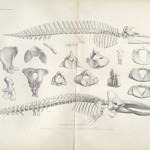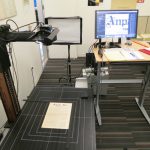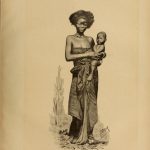 With all of our talk about our new Whales exhibit, have we piqued your interest in whale research at the Smithsonian? We certainly hope so! Below, we’ve collected a few handy resources related to our marine mammal friends.
With all of our talk about our new Whales exhibit, have we piqued your interest in whale research at the Smithsonian? We certainly hope so! Below, we’ve collected a few handy resources related to our marine mammal friends.
Category: Digitization

The Smithsonian Libraries opens its new exhibition “Whales: From Bone to Book” in the Smithsonian’s National Museum of Natural History May 25. This exhibition is a collaboration between the Libraries and the museum’s Department of Paleobiology. “Bone to Book” will be on display through April 2014.

This post was contributed by Ann Juneau, Department Head, National Museum of Natural History Library.
A determined need to know more about their heritage and history is what drove the Shakopee Mdewakanton Sioux Community in Minnesota to want to digitize two newspapers of their ancestors in the Dakotas. First contacting the American Indian Studies Research Institute at Indiana University, The Community began their quest. The communique for assistance then went on to a Smithsonian Institution emeritus anthropologist, and close colleague of the Institute’s director, and the kinetic energy was established.
 The Cultural Heritage Library (CHL) has been through a few incarnations over the last 3 years but the content remains the same. It is a digital collection that includes materials from the History, Art, and Culture libraries within the Smithsonian. The collection has been developed using branch librarian’s selections as well as items that have been identified as being relatively scarce according to OCLC holdings. Subject headings are part of the descriptive metadata for each title and are available to browse from the Internet Archive website, providing an at-a-glance overview of the collection.
The Cultural Heritage Library (CHL) has been through a few incarnations over the last 3 years but the content remains the same. It is a digital collection that includes materials from the History, Art, and Culture libraries within the Smithsonian. The collection has been developed using branch librarian’s selections as well as items that have been identified as being relatively scarce according to OCLC holdings. Subject headings are part of the descriptive metadata for each title and are available to browse from the Internet Archive website, providing an at-a-glance overview of the collection.
The open access (OA) movement has a lot of moving parts. For example it has led some research funding agencies to mandate that research publications resulting from grants should be made publicly available. A recent memo from the White House Office of Science and Technology Policy requires federal science agencies to prepare a policy for making the published results of scientific research available to the public. The Smithsonian Institution is now working to formalize its policy.

The Smithsonian Institution recently announced that it will join with the Digital Public Library of America (DPLA) to provide links to a wealth of the Institution’s cultural and scientific content. The DPLA pilot project, which combines and centralizes links to the collections of participating cultural institutions, launched April 18.
 The Biodiversity Heritage Library (BHL) has welcomed a new member: the Library of Congress. The fifteenth partner of the BHL, the Library of Congress will contribute to the digitization of historical science literature in the collection. All material will be online, free and available to the public.
The Biodiversity Heritage Library (BHL) has welcomed a new member: the Library of Congress. The fifteenth partner of the BHL, the Library of Congress will contribute to the digitization of historical science literature in the collection. All material will be online, free and available to the public.
